The Tsinghua PBCSF Global Finance Forum 2025 – “A Shared Future: Building an Open and Inclusive Economic and Financial System” was successfully held in Shenzhen on May 17–18. Session I, titled “Can Nations Agree? Orchestrating International Cooperation in the Uncertain World,” brought together five leading scholars and experts from around the world to discuss global financial cooperation and the reshaping of the international monetary order amid rising uncertainty. Their thought-provoking perspectives delivered an insightful and dynamic exchange of ideas.
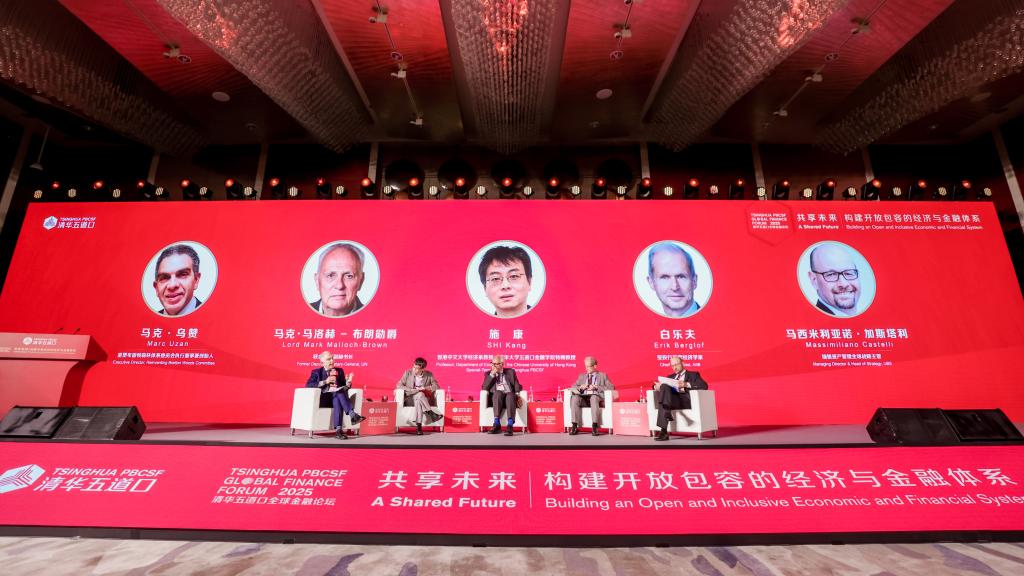
[Photo: Roundtable Discussion]
The forum took the form of a roundtable discussion, featuring Lord Mark Malloch-Brown, former UN Deputy Secretary-General; Erik Berglöf, Chief Economist of the Asian Infrastructure Investment Bank (AIIB); SHI Kang, Professor at the Chinese University of Hong Kong and Special-Term Professor at Tsinghua PBC School of Finance; and Massimiliano Castelli, Head of Global Strategy at UBS Asset Management. The session was moderated by Marc Uzan, Executive Director and Founder of the Reinventing Bretton Woods Committee.
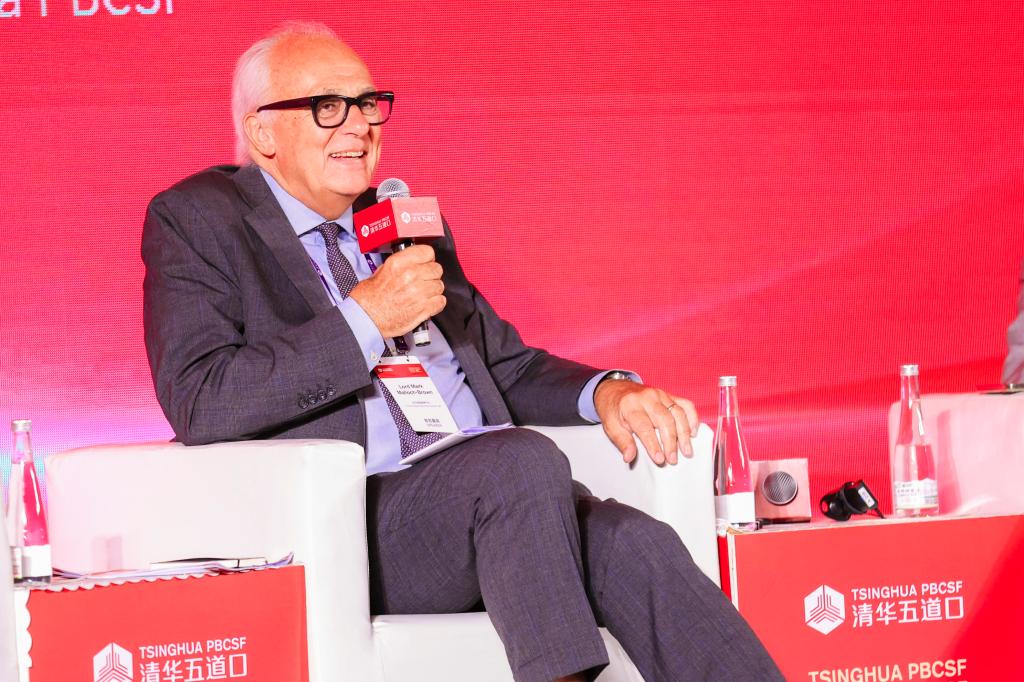
[Photo: Lord Mark Malloch-Brown]
Lord Mark Malloch-Brown opened the session by discussing the fragility of the current international order and the importance of multilateralism. He argued that U.S. unilateralism and its tariff policies under the Trump administration have undermined global cooperation, leading to stagnating economic growth and heightened political uncertainty. Despite the emergence of a multipolar world, the U.S. continues to dominate international institutions. He emphasized the need for China, Europe, and developing countries to actively advocate for a more inclusive multilateral system that better reflects the diversity of global power structures. The current crisis, he noted, presents both challenges and opportunities to rebuild a fairer international system. Institutions like the IMF and World Bank must collaborate with regional institutions to form a more inclusive development network. He called on world leaders to take bold international responsibility, overcome nationalist tendencies, and address global imbalances and emerging crises.
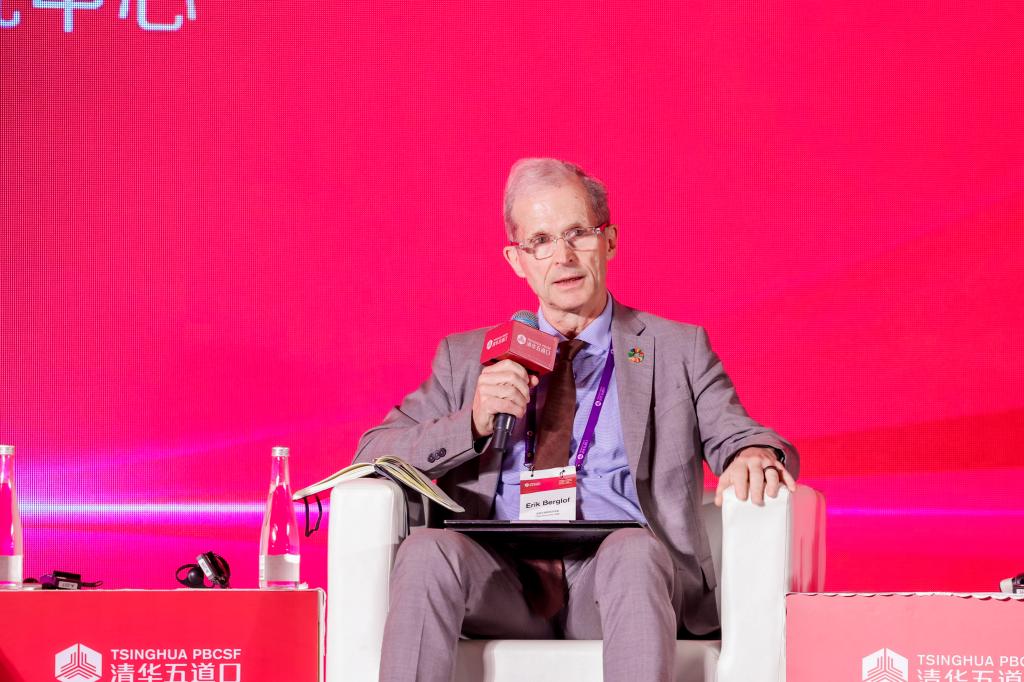
[Photo: Erik Berglöf]
Speaking from a regional perspective, Erik Berglöf highlighted the growing importance of a diversified multilateral system, arguing that the unipolar trade structure is no longer viable. Current multilateral mechanisms require more negotiation and compromise. He pointed to the rich potential for cooperation between China, Europe, and developing countries—such as Europe's expertise in energy efficiency,China's capabilities in technology and knowledge transfer, and particularly the global climate initiatives. He advocated for the formation of “coalitions of the willing” to create new mechanisms and institutions and enhance the resilience of emerging and developing economies.
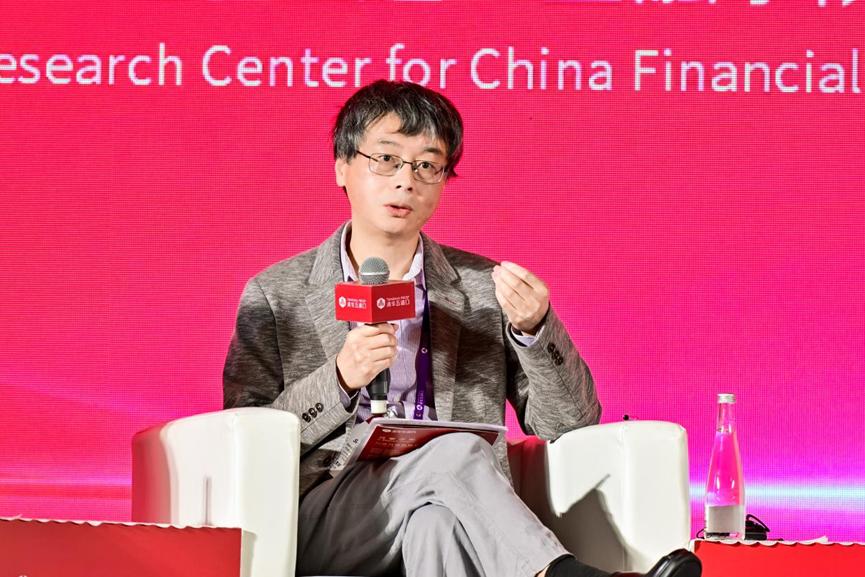
[Photo: Professor Kang Shi]
Professor Kang Shi addressed the challenges posed by global economic imbalances. He emphasized the urgency of multilateral coordination to restore international cooperation, which is currently in decline. China, he said, opposes hegemony and supports mutual respect, equality, and shared development within multilateral frameworks like the UN and WTO.
As a major economy, China should pivot from an export-driven model to one driven by domestic demand. In 2025, boosting domestic consumption will be central to economic policy. He noted that while China and the U.S. have agreed on a 90-day tariff truce, deeper cooperation will require time and patience. China’s growth hinges on internal reforms and industrial upgrades, particularly in sectors such as clean energy, EVs, and advanced manufacturing. Stimulating domestic demand and building complete industrial chains are key to improving productivity. He also pointed to the irrationality of U.S. tariff strategies and proposed that the global financial system should develop alternative reserve assets. Institutions like the IMF could play a stronger role, including expanding the role of Special Drawing Rights (SDRs).
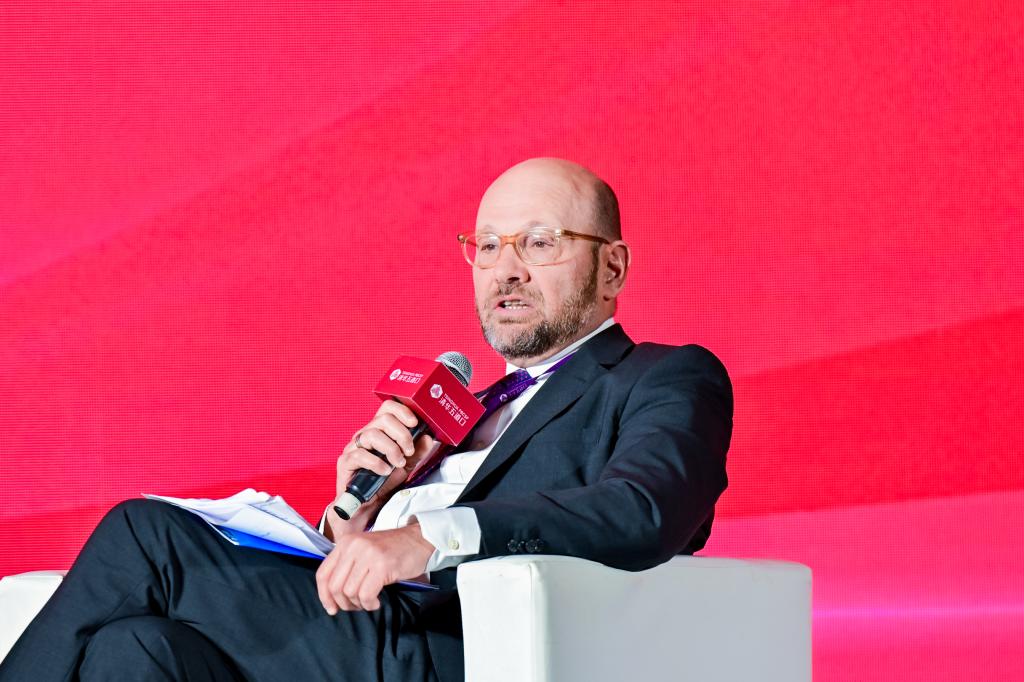
[Photo: Massimiliano Castelli]
Massimiliano Castelli explored the role of the U.S. dollar amid geopolitical turbulence and whether it could lose its status as a global safe-haven asset. Despite current uncertainties, he believes the U.S. dollar remains dominant due to its unmatched liquidity. However, the euro and rRMB may gain ground and pose increasing competition. For the euro, this would require deeper financial integration and fiscal unity in Europe. The RMB has already made significant progress as a global settlement currency and could one day serve as a reserve currency.
Though no currency can yet replace the dollar, central banks and institutional investors are gradually reducing their dollar asset holdings. He stressed that building a new global monetary order will take time and must be a collective effort. Regional cooperation and global equal opportunity in investment will be vital.
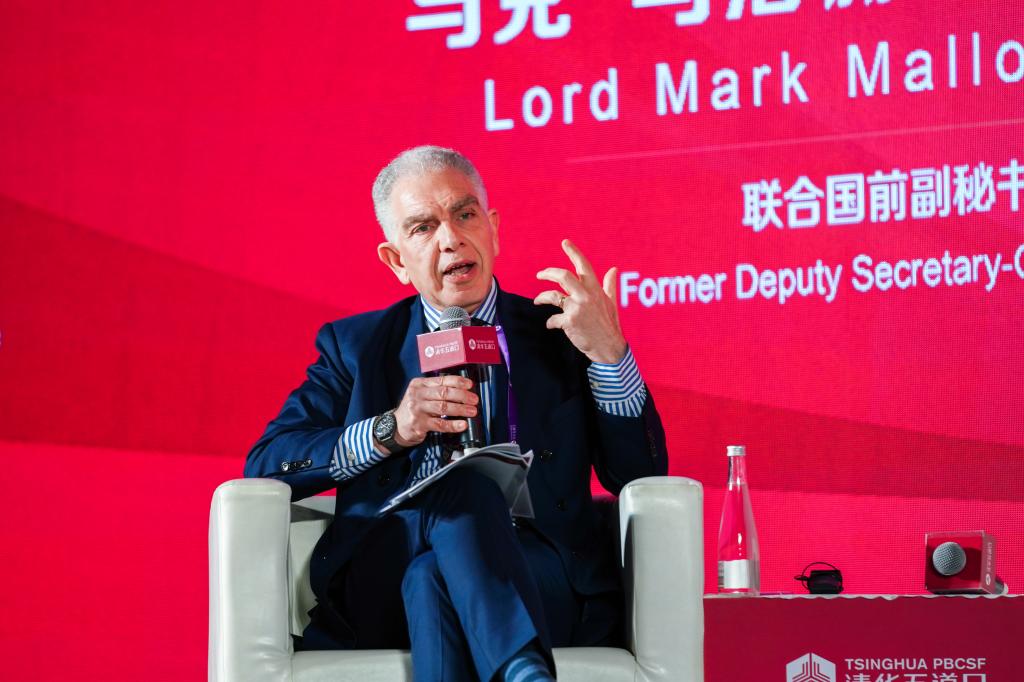
[Photo: Moderator Marc Uzan]
Moderator Marc Uzan concluded the session by noting the differences between regional and global arrangements. He highlighted Asia’s untapped potential in trade and investment integration and called for stronger cross-border infrastructure and interconnectivity. As the international financial system is rebuilt, new rules and alliances must be established to enhance regional collaboration and global stability.